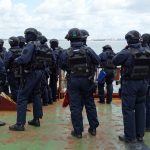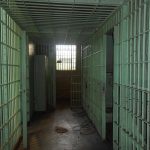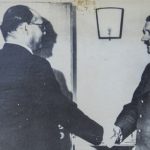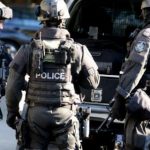NSW Police to Target Potential ‘Lone-Wolf’ Terrorists

A new unit of the NSW Police Force has been created which is ostensibly aimed at combating lone-wolf terrorism by closely monitoring ‘fixated persons’.
NSW Police Commissioner Mick Fuller has told the media that the unit will focus on the intersection between ‘radicalisation’, mental illness and lone-wolf attacks.
However, there are concerns the unit will do little more than target, harass and silence those who speak out against the status quo.
Justification
Mr Fuller says there is a “new phenomenon” of people who may seek to commit violent acts as a result of being fixated on various issues.
He claims the new Fixated Persons Investigation Unit (FPIU) will provide a fresh avenue for people to inform authorities about such “fixated persons”, thereby enabling police to closely monitor them.
“What we notice in about 80% cases is that a family member or a friend noticed a significant change but didn’t have the confidence to report it,” Fuller remarked.
He says the unit is about neutralising these fixated people before their issues are allowed to escalate into violence.
Who is a “fixated person”?
In Fuller’s view, a “fixated person” is any person other than a “terrorist” who becomes obsessively focused upon another individual or any organisation.
It is an extremely broad definition which could potentially captures anyone who repeatedly expresses unhappiness with another person or any private or state organisation.
Fuller says that around 50 people are currently monitored and investigated by the unit – including a person who allegedly shouted anti-war slogans on Anzac day, one who cut down a neighbour’s Australian flag, and a woman who expressed that she wanted to perform an “Islamic Bonnie and Clyde” with her husband.
First prosecution
A 26-year old man has already been charged as a result of investigations by the FPIU.
Police allege that, during his arrest for stealing and other offences, Blake Nicolas Pender began “muttering in a foreign language” and making threats to kill police.
Upon further enquiries by the FPIU, Mr Pender was charged with possessing an item connected with a terrorist act and preparing or planning a terrorist act.
Dangers of misuse
The experience of a similar program in Queensland provides an insight into the possible dangers of such units.
Before the Lindt cafe seige, Queensland’s Fixated Threat Assessment Centre (QFTAC) was one of only two law enforcement forensic psychiatric threat assessment units in the world.
Like the new NSW unit, the QFTAC relies upon state police officers and government mental health employees to identify people who are thought to ‘fixate’ on individuals and organisations – including public identities and government officials.
One Queensland criminal lawyer described how five police officers came to his client’s door and demanded he undergo a psychiatric assessment. According to the lawyer, this demand was made on the basis that his client “had recently made a number of official complaints about the behaviour of a certain public servant, who he contended had been abusing his powers in the line of duty”.
The fear, of course, is that such units will be used to identify, target and victimise whistleblowers and others who speak against state agents – rather than have any significant value in combating ‘lone-wolf’ attacks.
It should be noted that, unlike in Queensland, the NSW unit has been given specific powers to access medical records held by the NSW Department of Health.
Profiling
Director of the Forum on Australia’s Islamic Relations, Kuranda Seyit, , fears the unit will end up mining the Department of Health for mental health patients who happen to be Islamic, and target these people unjustifiably.
“We need to carefully consider where we’re going with this….because there is the danger of stigmatising not just people with mental illness but also Muslims,” Mr Seyit warns.
Greens MP David Shoebridge believes the initiative will struggle to succeed as there is little trust in those who are empowered to enforce it.
“The missing link in the NSW Police Force’s terrorism response is the connection with vulnerable communities,” he says. “The spate of highly armed and high visibility police raids in western Sydney that end with televised arrests of members of the Muslim community destroy hard-fought links with the community.”
Possible overuse
The 2015 QPS Violent Confrontations Review found that over a 12-month period, almost half of those referred to the Queensland unit had a serious mental illness, that 16% were considered high risk and that 50% were considered moderate risk.
Although the QPS did not publish the percentage of low risk individuals referred to the unit, it stands to reason that the remaining 34% did not fit the criteria of posing a threat.
The inference is that many were targeted by the unit when there was insufficient justification to do so.







